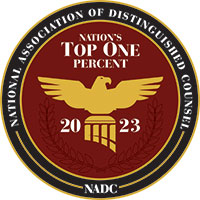As a parent, you want nothing more than to protect your children, so you should consider their needs in your estate plan. If your child is under 18 in North Carolina, your Last Will and Testament can express who you wish to take custody of them in the event of your untimely death.
Nominating the right legal guardian for your minor child can be challenging, requiring preparation for a scenario you hope will never occur. The compassionate North Carolina guardianship attorneys at Charlotte Estate Planning can help ensure you nominate a legal guardian to provide for your minor child in the event that you cannot.
What is a Legal Guardian in North Carolina?
A legal guardian becomes responsible for another individual (also known as a ward) in the event that the ward’s primary caregiver dies, loses parental rights, or becomes incapacitated.
Since the courts view anyone under 18 as legally incompetent and unable to make decisions or provide for themselves, many cases of guardianship involve a minor ward.
When the parents of a minor die in North Carolina, the courts appoint a legal guardian to fill the role of decision-maker. The guardian can make decisions on behalf of the child and even handle their property and finances until they become legal adults.
Legal Guardian of a Minor Child Responsibilities
In North Carolina, legal guardians have certain responsibilities and discretion over a ward’s well-being. Their duties depend on the type of guardian they are. However, every guardian should include the ward in the decision-making process as much as possible when it comes to the ward’s placement and well-being. Of course, a lot of this will depend on the ward’s age, maturity, and ability to appreciate the decisions that are being made on their behalf.
In the event that you die, a guardian can make a range of decisions for your minor child including, but not limited to:
- Where and with whom your child will live
- Which health care treatments your child receives
- How to resolve claims and other legal issues involving your child
- Which documents to sign on behalf of your child
Because a guardian’s responsibilities are so broad, nominating someone in your will who you believe will best uphold these duties and provide optimal care for your minor child is essential. That way, you can trust your loved one will be in good hands should the court decide to appoint the guardian you’ve nominated.
Types of Legal Guardians in NC
There are three different types of legal guardians in North Carolina:
Guardian of the Person
A Guardian of the Person makes decisions regarding the ward’s personal affairs. This can involve providing for the minor child’s food, shelter, maintenance, and overall care. Additionally, the Guardian of the Person may give consent to enable the ward to receive medical, legal, or other professional care and/or services. However, if there is a healthcare agent appointed under a valid Healthcare Power of Attorney, the healthcare agent shall have the power to exercise any authority granted under the Healthcare Power of Attorney.
According to North Carolina law, this type of guardian can only be appointed if the parents of a minor are both deceased or their rights have been terminated.
Guardian of the Estate
A Guardian of the Estate makes decisions regarding the ward’s financial affairs, such as collecting debts, paying taxes, and managing their assets and/or property interests. In exercising their powers, a Guardian of the Estate must perform in a reasonable and prudent manner every act that a reasonable and prudent person would perform to accomplish the goal of administering the ward’s estate legally and in the ward’s best interest.
General Guardian
A General Guardian holds the powers of both a Guardian of the Person and Guardian of the Estate. A General Guardian makes decisions regarding both the ward’s financial and personal affairs, essentially as a parent would. Since this is an immense responsibility, nominating an individual who is both fiscally and emotionally responsible is imperative.
How NC Courts Appoint a Legal Guardian
In North Carolina, the courts are not bound by your recommendation or nomination of a guardian for your minor child, however, significant weight will be given to any nomination you make within your estate planning documents, such as your Will. Although consideration is given to your request, the courts will ultimately decide which guardian should care for your child based on what they believe is in the child’s best interest.
Courts Consider the Child’s Best Interest
When determining the best interest of a minor child, the court may weigh factors such as:
- The child and guardian’s current relationship
- The health and well-being of the legal guardian
- The child’s age and developmental needs
- Whether the guardian can provide a stable home environment
- Whether the guardian has a criminal record or history of drug, alcohol, and/or child abuse
If your nominee seems to correspond with your child’s best interest, it is highly likely the courts will appoint them. Regardless, when considering any end of life planning, it is crucial to consult with an experienced estate planning attorney to determine whether your choice of guardian fits within the boundaries of North Carolina guardianship laws.
North Carolina Guardianship of a Minor Child FAQs
How do you terminate a guardianship?
As the parent of a minor child, you can revoke your proposed guardian by amending your will. Your attorney can assist in drafting any necessary changes to your estate planning documents and helping you nominate another individual who will responsibly uphold their duties as guardian.
If you are a guardian who wishes to terminate or modify the terms of your guardianship, you will need to gather evidence as to why you are unable to perform the role and file a motion with the court. It is best to contact an attorney who can document your wishes and help you with the next steps.
How do I become the legal guardian of a minor child?
If you wish to become a legal guardian of a minor child in North Carolina, you can file an application with the North Carolina General Court of Justice. If approved, you will be scheduled for a hearing to determine whether you would fulfill the responsibilities of a legal guardian.
What happens if I don’t include a guardian in my will?
The failure to nominate a guardian for your children under 18 will result in the court appointing a guardian of your children without any of your input.
If you have any children under the age of 18 or plan to have children in the future, it is imperative that your estate plan detail your wishes when it comes to appointing a guardian in the event of your death.
Is a legal guardian the same as a power of attorney?
No, a legal guardian is different from a power of attorney. A power of attorney can make decisions on your behalf if you become incapacitated or unable to manage your affairs for some time.
Alternatively, a legal guardian makes decisions on your minor child’s behalf in the event that you die or become incapacitated. A guardian’s role would likely begin after your death and be terminated when your child turns 18. A power of attorney will begin before your death and is terminated either upon your death, when the terms of the powers are over, or when the power of attorney is revoked.
Call a North Carolina Guardianship Lawyer Today
Take the initiative to secure your minor child’s future by nominating a legal guardian in your estate plan. Although the process might seem overwhelming, you do not have to do it alone. The experienced lawyers at Charlotte Estate Planning are available to consult you on your guardianship nomination and drafting a practical and effective estate plan.
Contact us at (704) 766-8836 to schedule a consultation with a Charlotte Estate Planning guardianship attorney today.







